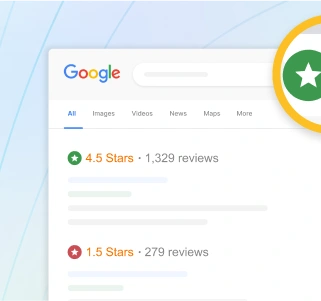In the largest health care fraud settlement in history, pharmaceutical giant Pfizer must pay $2.3 billion to resolve criminal and civil allegations that the company illegally promoted uses of four of its drugs, including the painkiller Bextra, the U.S. Department of Justice announced Wednesday.
Besides Bextra, the drugs were Geodon, an antipsychotic; Zyvox, an antibiotic; and Lyrica, an anti-epileptic drug. Once the Food and Drug Administration approves drugs, doctors can prescribe them off-label for any use, but makers can't market them for anything other than approved uses.
Pfizer subsidiary Pharmacia & Upjohn pleaded guilty to a felony violation for promoting off-label uses of Bextra, such as for pain relief after knee replacement surgery. At the FDA's request, Pfizer pulled Bextra off the market in April 2005 because its risks, including a rare, sometimes fatal, skin reaction, outweighed its benefits. It had been approved only for treating rheumatoid arthritis, osteoarthritis and menstrual pain.
As part of the settlement, Pfizer (PFE) will pay a criminal fine of $1.195 billion, the largest criminal fine ever imposed in the USA for any matter, according to the Justice Department. Pharmacia & Upjohn must pay a $105 million criminal fine.
Pfizer also has agreed to pay $1 billion in civil damages and penalties to compensate federal health-care programs for false claims submitted as a result of its marketing Bextra and the other four drugs for off-label use or at unapproved dosages.
In an interview Wednesday with USA TODAY, former Pfizer sales representative John Kopchinski said he was told to distribute 20-milligram samples to rheumatologists and orthopedists, even though the FDA had approved only 10-milligram doses for arthritis. The 20-milligram doses were approved only for menstrual pain, yet Kopchinski says he never called on gynecologists or other doctors who would treat that complaint.
In 2003, Kopchinski, 45, a West Point graduate, filed the first whistle-blower lawsuit, leading to the Justice Department investigation. Kopchinski says he was inspired by David Franklin, who filed a whistle-blower lawsuit against Pfizer for promoting Neurontin — at the time approved only to control seizures — for unapproved uses such as treating bipolar disorder.
When Kopchinski began questioning Pfizer's marketing of Bextra and sued, Pfizer fired him, a violation of the anti-retaliation provision of the federal False Claims Act, says his attorney, Erika Kelton of the Washington, D. C., firm Phillips & Cohen. At the time, his son was 2 and his wife was pregnant with twins.
Kopchinski, who began working for Pfizer in 1992, says he was the last employee personally hired by former CEO Edward Pratt, with whom he began corresponding while serving in the first Gulf War.
Kopchinski says one night while on guard duty, he saw a photo of Pratt, now deceased, in Reader's Digest and decided to write him to ask if he wanted to "adopt" his platoon. At the time, Kopchinski says, Pfizer owned Coty cosmetics, and Pratt, an assistant secretary of the Army in the Kennedy administration, responded by sending over three cases of cologne.
Although Kopchinski worked three years as a financial adviser after leaving Pfizer, he says, "I pretty much depleted my 401(k)."
Of the $102 million share of the settlement that will be divided among six whistle-blowers, Kopchinski will receive $51.5 million. To celebrate, he and his wife took their three children out of school Wednesday to have a new family portrait taken and to go to Chuck E. Cheese's for pizza. Kopchinski, who now lives in San Antonio, says he and his wife plan to be stay-at-home parents.
Pfizer mentioned the $2.3 billion settlement this past January in filings with the Securities and Exchange Commission, in which it said it was taking a $2.3 billion charge against earnings related to lawsuits, but the lawsuits were sealed and the investigation ongoing at the time, so no details could be released, Justice Department spokesman Charles Miller said Wednesday. Shares of Pfizer closed at $16.28, down 10 cents.
In a statement, Pfizer senior vice president and general counsel Amy Schulman said: "We regret certain actions taken in the past, but are proud of the action we've taken to strengthen our internal controls and pioneer new procedures."
Have a question?
Ask to get answers from the Pfizer staff and other customers.
- Sitejabber’s sole mission is to increase online transparency for buyers and businesses
- Sitejabber has helped over 200M buyers make better purchasing decisions online
- Suspicious reviews are flagged by our algorithms, moderators, and community members
- Sitejabber’s sole mission is to increase online transparency for buyers and businesses
- Sitejabber has helped over 200M buyers make better purchasing decisions online
- Suspicious reviews are flagged by our algorithms, moderators, and community members


